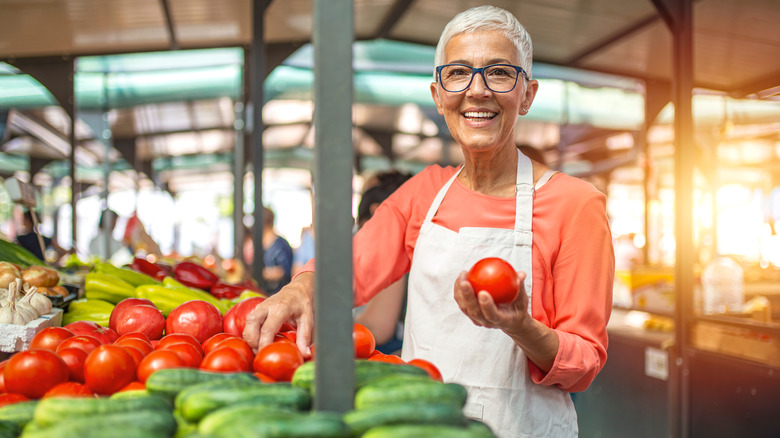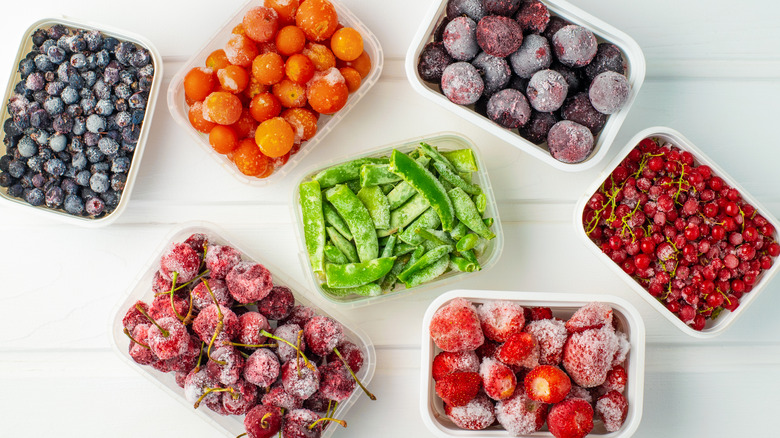Are Frozen Vegetables Unhealthy?
Over the past few months, you may have noticed that your weekly trips to the grocery store are yielding fewer bags and longer bills. According to the U.S. Bureau of Labor, prices of fresh vegetables and fruits increased the most out of all food groups, including dairy and other baked production the first months of 2022 — leaving many wondering how are we supposed to consume the recommended amount of vegetables each day if inflation is in our way.
With sky-high prices in the produce aisle — including prices for blueberries that went up by 45%, per Washington Post — many have moved their carts to the cheaper frozen aisle. Frozen produce experienced inflation, too, but it wasn't as high as regular produce (via The Packer), which meant that it was the more affordable way to get nutrients and vitamins. But many aren't convinced that cut, packaged and branded produce, taking up freezer space, has the same health benefits as fresh produce.
Frozen produce could be better than fresh produce
Ideally, we'd love to eat seasonal produce that was organically grown by a farmer. However, the majority of fresh produce we do get in grocery stores are picked before they're ripe, stored in warehouses, and then shipped for mass consumption. Since fruits and vegetables typically start losing nutrients within 24 hours of being harvested, per The Beet, the fresh produce we pick up isn't as nutritional as you might expect. According to Pub Med, a study conducted by Montclair University revealed that broccoli lost about 50% of its vitamin C content when it wasn't grown locally.
"The advantage of frozen fruits and vegetables is that they usually are picked when they're ripe, and then blanched in hot water to kill bacteria and stop enzyme activity that can spoil food. Then they're flash frozen, which tends to preserve nutrients," Dr. Andrew Weil wrote on his website.
This means that frozen foods actually have higher nutritional value than most fresh produce we find at a store. Dr. Weil also recommends getting bags of produce that aren't already cut and that have the USDA 'U.S. Fancy' label, if you can afford it, for maximum nutritional value.

